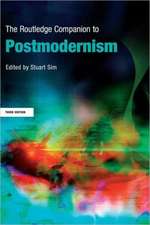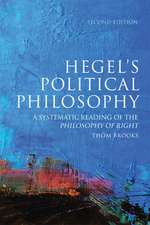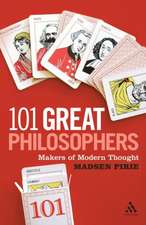The Culture of Confession from Augustine to Foucault: A Genealogy of the 'Confessing Animal': Studies in Philosophy
Autor Chloë Tayloren Limba Engleză Paperback – 10 noi 2010
| Toate formatele și edițiile | Preț | Express |
|---|---|---|
| Paperback (1) | 434.84 lei 6-8 săpt. | |
| Taylor & Francis – 10 noi 2010 | 434.84 lei 6-8 săpt. | |
| Hardback (1) | 1112.34 lei 6-8 săpt. | |
| Taylor & Francis – 25 aug 2008 | 1112.34 lei 6-8 săpt. |
Din seria Studies in Philosophy
- 9%
 Preț: 1037.82 lei
Preț: 1037.82 lei - 9%
 Preț: 1004.93 lei
Preț: 1004.93 lei -
 Preț: 487.86 lei
Preț: 487.86 lei -
 Preț: 489.99 lei
Preț: 489.99 lei -
 Preț: 480.28 lei
Preț: 480.28 lei -
 Preț: 482.74 lei
Preț: 482.74 lei - 18%
 Preț: 1056.28 lei
Preț: 1056.28 lei -
 Preț: 478.71 lei
Preț: 478.71 lei - 18%
 Preț: 949.78 lei
Preț: 949.78 lei -
 Preț: 481.58 lei
Preț: 481.58 lei - 31%
 Preț: 763.39 lei
Preț: 763.39 lei -
 Preț: 482.35 lei
Preț: 482.35 lei -
 Preț: 488.12 lei
Preț: 488.12 lei -
 Preț: 491.68 lei
Preț: 491.68 lei -
 Preț: 436.75 lei
Preț: 436.75 lei - 18%
 Preț: 1056.28 lei
Preț: 1056.28 lei - 18%
 Preț: 1056.28 lei
Preț: 1056.28 lei -
 Preț: 482.82 lei
Preț: 482.82 lei -
 Preț: 479.67 lei
Preț: 479.67 lei -
 Preț: 488.33 lei
Preț: 488.33 lei -
 Preț: 485.24 lei
Preț: 485.24 lei -
 Preț: 482.35 lei
Preț: 482.35 lei -
 Preț: 480.07 lei
Preț: 480.07 lei -
 Preț: 444.23 lei
Preț: 444.23 lei - 18%
 Preț: 1106.81 lei
Preț: 1106.81 lei -
 Preț: 465.69 lei
Preț: 465.69 lei - 18%
 Preț: 1054.71 lei
Preț: 1054.71 lei - 18%
 Preț: 1056.71 lei
Preț: 1056.71 lei -
 Preț: 483.20 lei
Preț: 483.20 lei -
 Preț: 356.18 lei
Preț: 356.18 lei -
 Preț: 484.47 lei
Preț: 484.47 lei -
 Preț: 488.33 lei
Preț: 488.33 lei -
 Preț: 222.03 lei
Preț: 222.03 lei -
 Preț: 444.93 lei
Preț: 444.93 lei
Preț: 434.84 lei
Nou
Puncte Express: 652
Preț estimativ în valută:
83.20€ • 86.87$ • 68.86£
83.20€ • 86.87$ • 68.86£
Carte tipărită la comandă
Livrare economică 04-18 aprilie
Preluare comenzi: 021 569.72.76
Specificații
ISBN-13: 9780415887816
ISBN-10: 041588781X
Pagini: 312
Ilustrații: 13 Halftones, black and white
Dimensiuni: 152 x 229 x 17 mm
Greutate: 0.42 kg
Ediția:1
Editura: Taylor & Francis
Colecția Routledge
Seria Studies in Philosophy
Locul publicării:Oxford, United Kingdom
ISBN-10: 041588781X
Pagini: 312
Ilustrații: 13 Halftones, black and white
Dimensiuni: 152 x 229 x 17 mm
Greutate: 0.42 kg
Ediția:1
Editura: Taylor & Francis
Colecția Routledge
Seria Studies in Philosophy
Locul publicării:Oxford, United Kingdom
Cuprins
List of Figures
Acknowledgments
Introduction
Chapter One: Confession from Antiquity to the Counter-Reformation
Chapter Two: Confession and Modern Subjectivity
Chapter Three: Psychoanalysis
Chapter Four: Confessing the Other
Chapter Five: Alternatives to Confession
Conclusions
Notes
Bibliography
Index
Acknowledgments
Introduction
Chapter One: Confession from Antiquity to the Counter-Reformation
Chapter Two: Confession and Modern Subjectivity
Chapter Three: Psychoanalysis
Chapter Four: Confessing the Other
Chapter Five: Alternatives to Confession
Conclusions
Notes
Bibliography
Index
Descriere
This book is a genealogical study of confession. Drawing on the work of Michel Foucault as well as the history of Western confessional writings from Ancient Greece to contemporary pop culture, this book challenges the transhistorical and commonsense views of confession as an innate impulse resulting in the psychological liberation of the confessing subject. On the contrary, confessional desire is argued to be contingent and constraining, and alternatives to confessional subjectivity are explored.
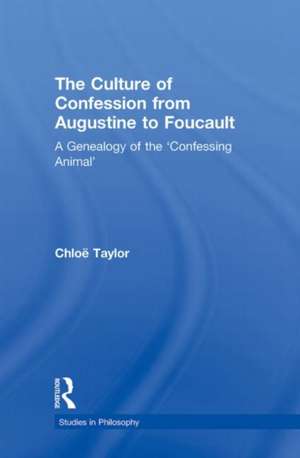

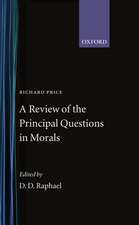




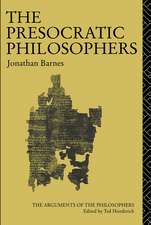
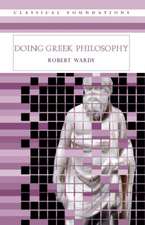

![British Empirical Philosophers (Routledge Revivals): Locke, Berkeley, Hume, Reid and J. S. Mill. [An anthology]](https://i4.books-express.ro/bt/9780415537742/british-empirical-philosophers-routledge-revivals.jpg)
